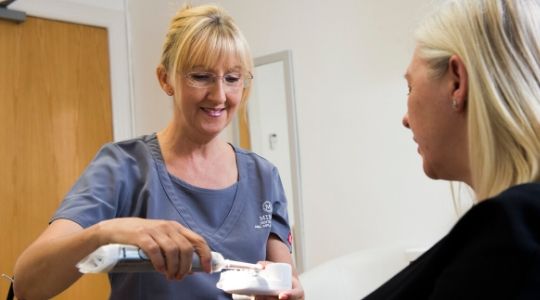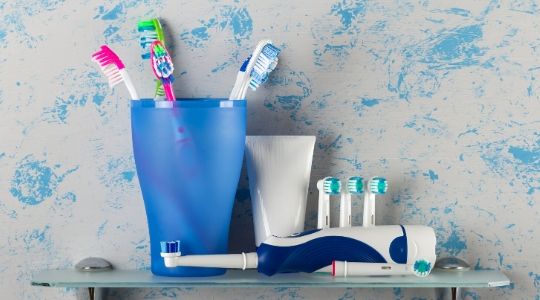
Common dental problems in later life
If you look after your teeth, there is no reason you can’t enjoy good oral health well into old age.
However, as you grow in years, there are a series of natural changes that occur in the mouth and throughout the body which can increase your risk of dental problems. Knowing the common conditions associated with ageing enables you to take steps to prevent and treat them early before they progress into something more serious.
Tooth decay
Gum recession, which is common in later life, is the process by which the border where the gum tissue meets the teeth is worn away or pulls back, exposing more of the tooth enamel. This can facilitate tooth or root decay exposing more of the tooth surface and creating gaps between the teeth and gums where plaque or food particles can collect and build up.
Effective brushing and flossing, ensuring all the exposed surfaces of the teeth are cleaned, can prevent this. Regular trips to the dental hygienist for a professional clean below the gum line and root surfaces can also minimise the risk of tooth decay.

Gum disease
Gum disease occurs when a build-up of plaque on the teeth and gums results in an infection of the gum surrounding the teeth. If left unchecked, it can become very serious.
Gum disease can be avoided with good oral care throughout life and regular visits to the dentist to check you aren’t developing any of these symptoms.

Sensitive teeth
As tooth enamel thins, which can happen gradually throughout your life, teeth become more sensitive. You need to be careful not to overbrush, or brush too hard when cleaning your teeth, as this wears away at the enamel.
Brushing with a softer bristled toothbrush, or ideally an electric toothbrush and using a desensitising toothpaste can reduce sensitivity over time. Recent studies also suggest that rotating electric toothbrushes reduce plaque and gingivitis more than manual toothbrushes*.

Dry mouth
This is one of the lesser known side effects of getting older and is caused by a lack of saliva in the mouth. It is usually caused as a side effect of some medication, which is why it becomes more common as you age. Since saliva is necessary to wash out the food waste, plaque and acid from the mouth after eating, a lack of saliva heightens the risk of tooth decay.
You can combat dry mouth by drinking plenty of water and chewing sugar-free gum. You can even find artificial saliva products- so talk to your dentist about these and any other measures you could be taking.
How to prevent dental problems in later life
The key to maintaining good oral health into old age is simply sticking to the basics of good dental care. Here are our top tips for keeping a healthy mouth as you age:
- Visit the dentist regularly, even if you wear dentures, to get your teeth and gums checked and professionally cleaned where appropriate
- Brush your teeth at least twice a day, for at least two minutes, using fluoride toothpaste
- Floss or use interdental brushes every day to protect the nooks and crannies between your teeth and your gums
- Use an antibacterial mouthwash alongside brushing and flossing to reduce any plaque build-ups
- Minimise your sugar intake and steer clear of snacks packed with starch
- Don’t smoke or use tobacco- in the short-term it leads to stained teeth, bad breath and a weakened sense of taste. In the longer term, it increases your risk of gum disease and mouth cancer
- If your medication causes dry mouth, speak to your doctor about alternatives
Are you looking after your oral health?
As simple as it sounds, brushing your teeth well, eating a healthy diet and regular visits to the dentist are key to maintaining optimal oral health throughout your life.
Bupa Dental Care is a leading provider of both NHS and private dental services and has over 350 practices across the UK. Find your local practice below to book in your next dental check-up.
* Yaacob M, Worthington HV, Deacon SA, Deery C, Walmsley AD, Robinson PG, Glenny AM. Powered versus manual toothbrushing for oral health. Cochrane Database of Systematic Reviews 2014, Issue 6. Art. No.: CD002281.


